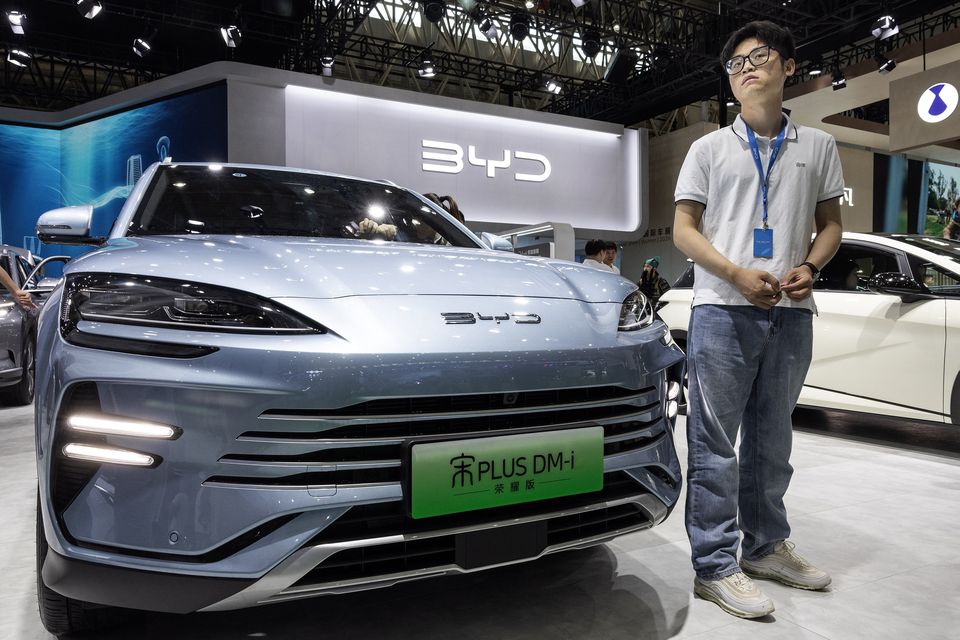Fancy a new EV for under €20k? That’s what China’s BYD will charge for its new hatchback in Europe
The BYD stand at the 2024 Central China International Auto Show. Photo: Getty
Cheap electric vehicles from China are pushing into Europe and undercutting one of the region’s biggest industries.
BYD, which overtook Tesla late last year as the biggest global EV maker, is about to raise the stakes.
The Chinese manufacturer announced plans last month to bring its Seagull hatchback to Europe next year.
The car offers premium features like a rotating touch screen and wireless phone charging – and in China it sells for less than €9,250.
Even after tariffs and modifications to meet EU standards, BYD executives expect to sell the Seagull for less than €20,000 on the continent.
That would price the four-seater thousands below electric runabouts that Stellantis (owner of Citroen, Fiat, Maserati, Opel, Peugeot and more), Renault and others are counting on to help them bridge the energy transition.
Its impending arrival is ratcheting up pressure on Europe’s automakers for dominance in the post-combustion engine era.
An anti-subsidy investigation by Brussels is unlikely to extinguish the threat.
“We are looking very closely at this model and others coming from Chinese EV makers,” said Martin Sander, head of Ford’s European EV business. “Of course, we are nervous when new competition is coming to the market.”
The Seagull has won plaudits for its build quality, design and technology.
And it’s no one-off: the company plans to introduce a higher-end €25,000 EV.
BYD’s plans for two plants in the region will help it blunt the effects of any European Union tariffs meant to slow its path.
BYD is in the vanguard of Chinese carmakers that are increasingly targeting exports after seizing control of their home market. Tesla CEO Elon Musk warned in January they’ll “pretty much demolish” most other carmakers, unless trade barriers aren’t erected.
While Joe Biden has moved to almost quadruple US duties on Chinese EVs, essentially slamming the door on those imports, tariffs are more complicated in the EU.
Tariffs should not be used to shield our lead manufacturers from meaningful competition
European carmakers are more dependent on the Chinese market than their US counterparts, making them vulnerable to retaliatory measures from Beijing.
And Europe’s plan to phase out the combustion-engine car also will require cheaper electric vehicles to boost mass-market adoption.
The EU launched a probe of China’s EV industry last year and is nearing a decision on raising levies, but some industry executives and experts have pushed back.
“Tariffs should not be used to shield our lead manufacturers from meaningful competition,” said Julia Poliscanova, senior director for vehicles and e-mobility supply chains at lobby group Transport & Environment.
Judging by the reviews, incumbent carmakers in Europe and the US are right to take the Seagull seriously.
“We have no intention to let this price band open for our Chinese competitors,” Stellantis CEO Carlos Tavares said last week about the upcoming European Seagull, dismissing calls for tariffs.
“We don’t think that protectionism will give us a long-term way out of this competition.”
Join the Irish Independent WhatsApp channel
Stay up to date with all the latest news















